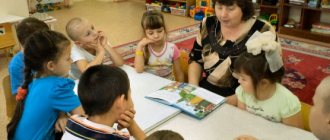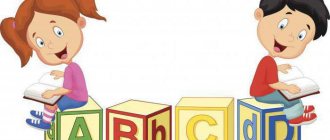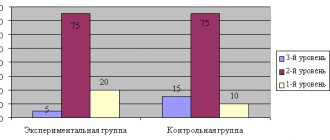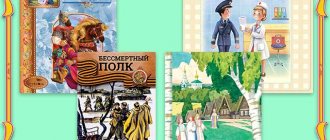Rich vocabulary
Research results from Reading habits / TestYourVocab.com show a direct relationship between the amount of fiction read and vocabulary. The table shows the results of a survey of 30-year-old readers.
| Reading habits | Vocabulary, words |
| Read a lot, a lot of fiction | 29 558 |
| Read a lot, sometimes fiction | 28 299 |
| Read a lot, rarely read fiction | 24 064 |
| Read sometimes, sometimes fiction | 23 353 |
| Read sometimes, rarely read fiction | 21 947 |
| Rarely read, rarely read fiction | 12 402 |
If you want to speak beautifully, read fiction. This way you will learn to better formulate thoughts and tell stories, and get rid of cliched phrases in speech and writing.
Rich imagination and imaginative thinking
“The author only writes half of the book. The other half is written by the reader,” said the classic of English literature Joseph Conrad. A good writer does not really tell everything, but only the essentials, forcing the reader to use his imagination. The appearance and background of the characters, the setting, the smells, the timbre of the voice - as directors filming a film adaptation, we often come up with the details ourselves.
If you have a hard time imagining, take up fiction. It will spark your imagination.
Coming to terms with uncertainty
Stability is a myth, but novel connoisseurs are of little concern about this. Study by M. Djikic, K. Oatley, MC Moldoveanu. Opening the closed mind: The effect of exposure to literature on the need for closure / Creativity Research Journal demonstrated that people who read fictional stories have less need for cognitive certainty than those who read nonfiction.
In an experiment, 100 students from the University of Toronto read one of eight short stories or one of eight essays. Afterwards, everyone filled out a questionnaire assessing their level of emotional need for certainty and stability. The results showed that participants who read the stories had an easier attitude towards chaos and instability. This means they think more broadly and approach problems creatively.
Freedom from stereotypes
Literature demonstrates the laws by which society operates and increases tolerance towards minorities and the oppressed.
In one study by L. Vezzali, S. Stathi et al. The greatest magic of Harry Potter: Reducing prejudice / Journal of Applied Social Psychology fifth-graders read excerpts from Harry Potter. The teacher helped them analyze the text, which traced Harry Potter's loyal position towards Mudbloods - students born into Muggle families. After three lessons, the children became more tolerant of immigrants, homosexuals and refugees.
Developed empathy
Reading fiction develops Novel finding: Reading literary fiction improves empathy / Scientific American empathy and helps to imagine oneself in the place of another.
This is due to the fact that the brain processes read and real information in the same way. The left temporal lobe, which is responsible for the perception of language, makes the brain think that it is doing what the hero of the story is actually doing. This phenomenon is known as “embodied cognition.” As we read, we literally move into the character's body.
Thanks to fiction, we stop focusing on ourselves and begin to understand the behavior and motivations of others.
Solid memory and logic
To remember all the characters in War and Peace and understand the twists and turns of the plot, you need not only strong nerves, but also developed memory and logic. By working your way through a difficult novel, you extend the life of your brain.
Proven by RS Wilson, PA Boyle et al. Life-span cognitive activity, neuropathological burden, and cognitive aging / Neurology that avid readers in old age are 32% less likely to suffer from Alzheimer's disease.
The longer the piece you choose, the better your brain works.






